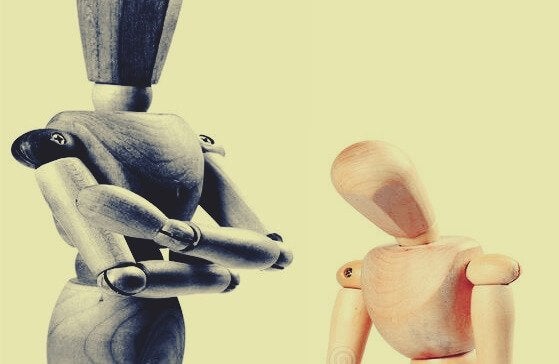The dialectic of master and slave is the name given to a theoretical construction by Friedrich Hegel, considered one of the key elements of his philosophy that later influenced many philosophers, and not only became the basis of dialectics materialist developed by Karl Marx. , but it also had a strong influence on psychoanalysis.
For Hegel, human reality condenses into what we call Universal History. In turn, what marked this story was the unequal relationship between human beings. Between tyrants and repressed. In this way, historical dialectic is the dialectic of the master and slave. What has moved history is this contradiction between them, which has created an inequality in human self-awareness.
“People are part of the state who don’t know what they want. “Friedrich Hegel?
It should be remembered that, for Hegel, dialectics is a form of inference, in which two thesis is contrasted which, in turn, give rise to new concepts that overcome this contradiction, so there is a thesis that proposes certain arguments. by an opposing thesis, which exposes the problems or contradictions that exist in the first thesis. From this dynamic between thesis and the opposite thesis arises synthesis, which ends up being a solution or a new perspective on the subject.
In the dialectic of Hegel’s master and slave, desire plays a very important role. This philosopher indicates that animals have a desire that is satisfied with an immediate purpose, the animal does not know what it wants. In humans, on the other hand, things are very different.
For Hegel, history is the story of social relationships. This story begins when two human desires are confronted, what the human being wants is to be desired by another human being, that is, to be recognized by the other. Human desire is therefore fundamentally a desire for recognition.
The human being wants others to give him exceptional value, that is, a specific value that differentiates each individual from others, is what defines the human condition. So, according to Hegel, the most characteristic thing of the human being is to impose himself against others, only when the other recognizes him as an autonomous person does self-awareness appear, which in turn forges a mortal struggle. between them.
From these concepts, which we explain very superficially, Hegel builds his dialectic of the master and the slave, which consists in proposing that, from the first moment of history, two figures are formed: the master and the slave. . The first is the second. The way this happens is denial, that is, not recognizing your desire, he dominates it by overruding it. The dominated must renounce their desire for recognition, mainly for fear of dying.
In this way, a form of consciousness arises among the dominated, that consciousness is that of the one who recognizes the other as a master and recognizes himself as a slave, so he is unable to model self-awareness as such, but assumes himself from a logic where the master’s gaze prevails. This is the essence of the dialectic of the master and the slave.
All this has a significant impact on production, in this does not come into contact with the raw material, or the?Thing? That the slave transforms with his work. In turn, the slave comes into contact with this raw material only to transform it, but it is not yours and is not intended for your consumption, it is like the worker who produces bricks, but does not own a house.
Thus, what Hegel proposes is that the dialectic of history is the dialectic of the master and the slave. Since the beginning of the story there have been dominators and dominators, a recognized entity, the master and an entity that recognizes you, the slave. This slave ceases to be an autonomous entity and becomes?One thing for the master.
Because of this domination, the master intimidates the slave and forces him to work for him. Isn’t this job a process that? It creates the slave, if not an imposition that makes him a mere object of work, however, the master ends up dependent on the slave for his own survival, and there is always a time when the roles are reversed, because the slave ends up being indispensable to the master, but is not indispensable to the slave.
The dialectic of the master and slave is a concept that has marked a before and after in the history of philosophy and has laid a foundation that, although revised and reinterpreted, remains essentially valid.

